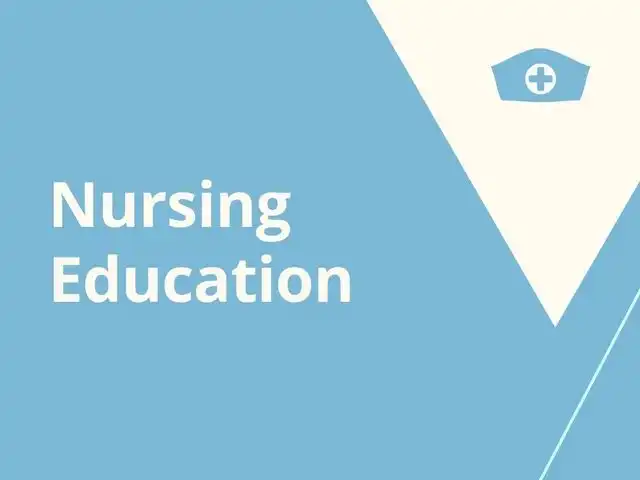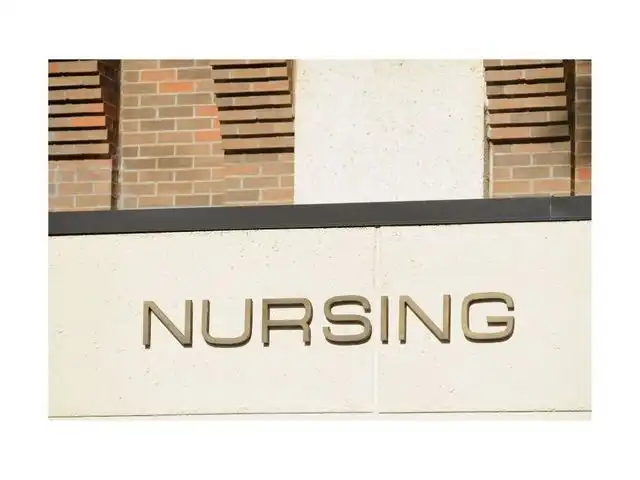Nursing education teaches people to offer nursing treatment in their communities, hospitals, and other institutions. Nurses cultivate information, skills, attitudes, and behaviors needed for the successful performance of nursing treatment.
Many people aspire to become nurses, but there are not enough places available in the world. To provide quality care, nurses must have a good understanding of the human body and its functions, and it includes learning about anatomy, physiology, diseases, and illnesses that affect humans.
Nursing education is a problem in the United States because nurses and nursing colleges. To solve this problem, we need to boost the number of nursing schools and make them more affordable for students.
The number of people who are employed in nursing has been increasing over the past few years, but there still aren’t enough nurses to meet demand. This is a significant issue because health care costs are rising rapidly.

Ways Schools Can Improve Nursing Education
Nursing education is a challenging profession to teach, and it requires a lot of patience, empathy, and dedication. Many nursing faculty members often struggle with balancing their teaching responsibilities with their personal lives.
There are many ways schools can improve nursing education. They can look at how they evaluate student learning and how they provide feedback to students. They can also make sure that they offer students an adequate amount of clinical medical knowledge.
A school of nursing is an educational institution that offers instruction in nursing and |associated health professions, such as midwifery, public health, occupational therapy, and physical therapy. They offer programs that guide to levels in these fields or certificates in particular areas of study.
Education is the key to offering a safe and efficient healthcare environment. Nurses are the backbone of any healthcare system, and they need to get the best education possible.
The five ways schools can improve nursing education are:
- Foundation class
- Clinical externships
- Continuing nursing education
- Leadership and management skills training
- Community engagement program
Continuing nursing education is crucial to providing excellent service to your patients and also growing in your career. It can help you develop and provide valuable knowledge, skill set, and experience that will help you progress throughout your career.
3 Essential Strategies for School Administrators to Transform Nursing Education
School administrators can use three essential strategies to transform nursing education and improve the nursing workforce. These include integrating technology into the curriculum, enhancing academic skills, and developing a corporate culture supporting nurses.
To transform nursing education and improve the nursing workforce, school administrators can implement these three essential strategies:
- Integrate technology into the curriculum
- Improve academic skills
- Develop a corporate culture that supports nurses
Ways Students Can Be Engaged in Learning and Teaching Careers in Nursing Science at School
The nursing profession is one of the fastest-growing professions in the world. With a shortage of nurses, schools are now more focused on finding ways to engage students in learning and teaching careers in nursing science.
There are five ways that students can be engaged in learning and teaching careers in nursing science at school:
- Become a student nurse
- Apply for an internship with a school or hospital
- Apply for a hospital job
- Volunteer at a hospital or clinic
- Become an RN or LPN
What is the difference between nursing education and nursing practice?
Nursing is a profession that encompasses many different aspects of care. It includes the development of nursing knowledge and skills and the application of this knowledge and skills to practice.
Understanding the difference between nursing education and nursing practice is crucial to understanding how the two can be integrated.
Nursing education teaches students about the science behind what they are learning. They learn about anatomy, physiology, disease processes, and intervention strategies for common conditions. Nursing education also covers health promotion and disease prevention strategies and ethical standards for nursing practice.
Nursing education typically consists of classroom instruction with lectures from faculty members followed by a clinical experience with patients or in a simulated setting like an emergency room or hospital ward.
Nursing is also a profession.
What are some types of educational programs that might be available to nurses?
The following are some types of educational programs that might be available to nurses:
- Onsite training
- Online courses
- Clinical practice guidelines
- Continuing education courses
- In-person training
What are some ways that an individual might practice nursing?
Nursing is a profession that requires knowledge of human anatomy and physiology and the ability to provide care for patients. This article will discuss some ways that an individual might practice nursing.
Nursing is a profession that requires knowledge of human anatomy and physiology and the ability to provide care for patients. This article will discuss some ways that an individual might practice nursing.
What You Need to Know About Becoming an RN in the Next 10 Years
It is predicted that there will be a shortage of doctors and nurses in the next decade. In order to meet this demand, it is necessary for those who are currently working in healthcare to continue their education.
Becoming an RN in the next ten years can be pretty challenging, but it can also be very rewarding. The following list includes some of the top 15 jobs in healthcare that are expected to become more prevalent in the next ten years.
Nursing Specialties That are Popping Up In Demand Today
Nursing is one of the most in-demand professions today, and it is a profession in that nurses can pursue their careers. The difference between a nurse and a nurse practitioner is that a nurse has to have a nursing degree and be licensed to practice, while a nurse practitioner does not have to have any nursing degree but needs to be approved by the state.
Nursing Specialties That are Popping Up In Demand Today:
- Nurse Practitioner
- Certified Registered Nurse Anesthetist
- Nurse Midwife
How Online Courses Can Help You Achieve Your Goals
Nursing courses are available online to help nurses achieve their goals. Online nursing degrees provide flexible learning opportunities that can be completed from anywhere.
Online nursing degree programs offer the same educational opportunities as traditional on-campus programs but with a flexible schedule that can be completed from anywhere in the world.
Online nursing degree programs allow students to pursue their education without leaving their current job or relocating. Students can work at any time and still complete their studies without worrying about commuting or finding childcare for their children.
Nursing schools offer online degrees through distance learning and blended learning methods, including a mix of traditional classroom instruction and online coursework.
How to Get a Nursing Degree Online
Nursing is one of the fastest-growing occupations in the US. There is a massive demand for nurses and nursing degrees, making it difficult to find a job.
Nursing degrees are now available online. Some online nursing programs are better than others, but they all provide a good foundation for students who want to enter the field of nursing.
If you’re looking for a career change or want to get into this field, there are many options out there that can help you achieve your goal.
How can nursing education help nurses improve their practice?
Nurses play an important role in healthcare; they are the most trusted members of a healthcare team. They are needed throughout a patient’s lifetime and provide care at every stage. Currently, there is a lack of nursing education to support nursing students and other healthcare professionals wanting to become nurses. This article discusses how a nursing education program can help nurses.
To be caring and effective, nurses need to keep up with the latest developments and trends within all aspects of healthcare as well as nursing. Nursing education provides these to experienced nurses who can better use it in their work.
How important is it for nurses to provide educational opportunities for patients/families/coaches/students?
Studies show that the healthcare industry varies on a wide scale. Some types of care are more necessary than others for every individual, and providing these opportunities ensures equal access to quality care.
Nurses are often responsible for educating patients and their families on various topics, including how to take care of themselves, what to expect during a hospital stay, and how to manage their health.
Patients who are struggling with medical conditions need to understand what they’re up against. Programs that provide educational opportunities for them around their diagnosis can help them live a better quality of life.
The most accessible healthcare professionals are nurses. They’re also good at providing education on preventative measures. With that in mind, they can help patients feel more confident in their health and body
How do we ensure that nurses have the resources they need in order to continue providing quality care to patients?
Nurses are the backbone of healthcare in the United States and worldwide. With healthcare costs on the rise, nurses are under constant pressure to provide quality care.
To ensure that nurses have the resources they need to continue providing quality care, we should create a system that offers incentives for nurses who provide high-quality care. We can do this by rewarding them with bonuses and promotions.



